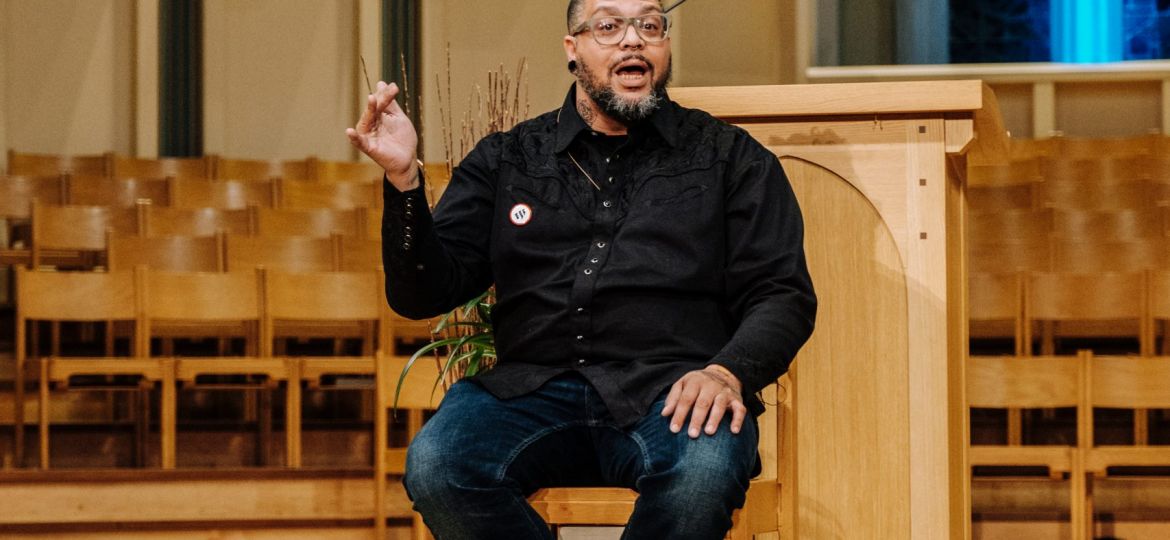
Reverend Lenny Duncan discussed his new book “Dear Church: A Love Letter From a Black Preacher to the Whitest Denomination in the US” alongside the topic of church revitalization through justice in Boe Chapel on Feb. 18.
Duncan has been on the road nonstop since July of last year speaking about his book at Evangelical Lutheran Church in America (ELCA) schools and churches around the country, promoting racial equality and the upheaval of white supremacy in the church.
Duncan preached at morning chapel and spoke again that evening. He hopes the St. Olaf community remembers “that the project of American Christianity is something that is worth salvaging, that the story of Jesus has direct parallels to their queer bodies, their brown bodies, and/or their priviledged bodies, that there is a real living hope and faith that you’re able to use out in the world.”
Duncan continued, “There’s a reason people keep coming to these stories after two thousand years, and not just to give you a bunch of s***** rules.”
Duncan believes in the church’s ability to renew itself because of God’s unlimited power. Redeeming the people of the church is the first step, but it’s up to our generation to pick this work up, Duncan said.
“I mean people are s*****. I’m s*****, you’re s*****, we all do s***** things. We’re not great,” Duncan said. “But God seems to work through really s***** people, and God seems to work through really s*****, broken things.”
He believes God is big enough that Jesus can speak through other faiths and traditions as well.
Duncan’s biggest challenge is garnering help from perpetrators of white supremacy, which he believes is a system that one can either start to dismantle or passively benefit from but never avoid.
Duncan believes colleges of faith like St. Olaf and rural churches can make the biggest impact in breaking down white supremacy. Colleges like St. Olaf train leaders who are “just good people,” while rural churches are at the front lines of inclusivity and change in “the heart of Trump country.”
Wondering what to do as a white person? Duncan said that there is an opportunity to be transformative in every vocation. He addressed three aspects of transformation, including how to “be good white folk,” speak up for the vulnerable and follow the leads of black women.
Duncan believes that white students need to educate themselves and realize that “everyone gets to start their journey, no one gets to take your journey from you.”
Duncan encouraged all students to challenge professors to study a wide variety of voices rather than just “old, dead white men.”
“You have to realize that the uncomfortability that you feel by speaking up is considerably less than the uncomfortability that most black, indigenous or people of color feel every day,” Duncan finished.

